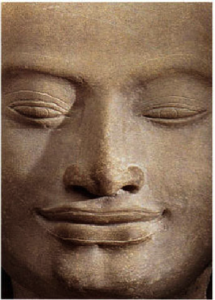 We had the first meeting of our Willpower Instinct Meditation Book Group at Yoga Bliss yesterday. This is truly a “yogic” book, in the sense that yoga is an awareness practice or even a way of living a conscious life. We came together for gentle yoga practice, meditation and discussion of the first chapter in the Willpower Instinct: I Will, I Won’t, I Want: What Willpower Is, and Why It Matters. Author Kelly McGonigal begins her book by asking whether you are clear about what matters most to you. This “I Want” is where we find our motivational power – the fuel we need to cultivate the resilient ability to either do the “harder thing” (I will clean the house) or to refrain from doing the “impulsive thing” (I won’t eat donuts for breakfast).
We had the first meeting of our Willpower Instinct Meditation Book Group at Yoga Bliss yesterday. This is truly a “yogic” book, in the sense that yoga is an awareness practice or even a way of living a conscious life. We came together for gentle yoga practice, meditation and discussion of the first chapter in the Willpower Instinct: I Will, I Won’t, I Want: What Willpower Is, and Why It Matters. Author Kelly McGonigal begins her book by asking whether you are clear about what matters most to you. This “I Want” is where we find our motivational power – the fuel we need to cultivate the resilient ability to either do the “harder thing” (I will clean the house) or to refrain from doing the “impulsive thing” (I won’t eat donuts for breakfast).
Kelly invites us to choose a willpower challenge to explore during the course of reading the book. She suggests choosing something that has “want” (motivational) power. We will be using her series of explorations in which we put ourselves “under the microscope” and exercises that we can use to test the ideas she presents about willpower and self-control.
In our gentle movement practice we explored Kelly’s premise that self-knowledge, self-awareness is the foundation upon which we build self-control. We simply noticed our approach to movement – with awareness or out of habit. I suggested students notice how they meet themselves in movement and in stillness – with care and sensitivity – with time and patience. Kelly uses mindfulness as a tool to build willpower and self-control. What does it mean to be mindful of the breath? Something very simple: to keep the breath in mind. In movement practice we keep our bodies, our breath and our movements in mind. When our attention strays we bring it back again. In this way will build resilience: our capacity to attend.
We went over the basic principles of sitting meditation to prepare for Kelly’s suggested practice of “brain training meditation”, a mindfulness meditation that focuses on the breath. We allowed some time for contemplation and journaling about what matters most to us and how it relates to the willpower challenge we’ll be working with during the course.
In our discussion I observed how many people are drawn to yoga’s unique synthesis of breath, body and mindfulness practices. Kelly says that the 1st rule of building willpower is to “know thyself”. Self-awareness is uniquely human. It is also an integral part of the yoga philosophy as outlined by Patanjali. It has been described as the Eight Limbs of Yoga or the Eightfold Path. I think of the Eightfold Path as a way of leading a conscious life. It is interesting to note that the powers of “I Will” and “I Won’t” correspond to two principles of the Eightfold Path. I shared a handout, Patanjali’s Yamas & Niyamas, that describes them.
“I will”, roughly corresponds to the five individual guidelines or observances, in Sanskrit called the Niyamas:
Saucha – purity, care for one’s physical, mental, emotional and spiritual well being
Santosha – contentment, willingness to accept what is
Tapas – self-discipline, inner-fire, ardor
Svadhyaya – self-reflection, study of wisdom teachings
Isvara-Pranidhana – surrender to that which supports our lives, devotion
“I won’t” corresponds to the five social guidelines or restraints called the Yamas:
Ahimsa – nonviolence, compassion for self and others
Satya – truth in thoughts, words and deeds
Asteya – not taking that which has not been freely given, generosity
Brahmacharya – moderation, conservation of energy
Aparigraha – non-covetousness, generosity in spirit and action
Perhaps these principles and the values they communicate can inspire the willpower challenges we choose embrace.
We discussed next week’s homework outlined by the attached summary:
Willpower Instinct Meditation Book Group Meeting 1 Homework
Check out Kelly’s Psychology Today blog and her excellent presentation entitled: Are You Sure You Want a Habit? We also talked about some good meditation tools that can support you in your “brain training meditation” practice including:
Jon Kabat-Zinn’s Wherever You Go, There You Are, an excellent introduction to mindfulness meditation
Bhodipaksa’s Wildmind Buddhist Meditation web-site where you can find introductory materials about meditation. His meditation store section carries the Enso Ansari meditation timer.
Insight Timer’s meditation timer for the i-Phone
Good luck with your challenges this week! Let’s remember Kelly’s advice:
“. . . that everyone struggles in some way with temptation, addiction, distraction and procrastination. These are not individual weaknesses that reveal personal inadequacies. They are universal experiences . . . part of the human condition. See the common humanity of willpower struggles.
Don’t concern yourself with being “bad” or “good” at meditation. Pay attention to not just how well you focus during meditation but also how well you focus and make choices during the rest of your day.”
